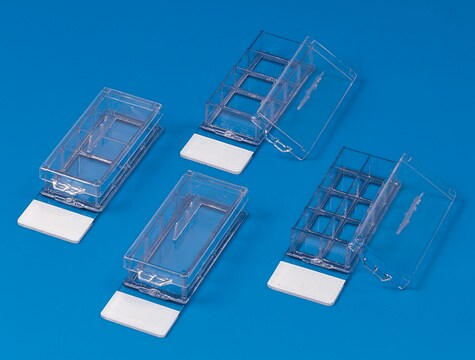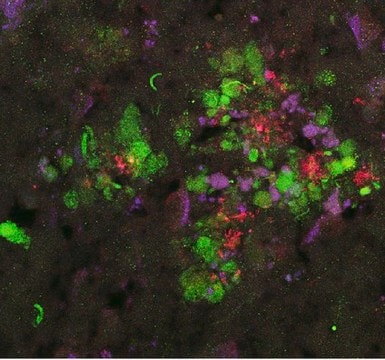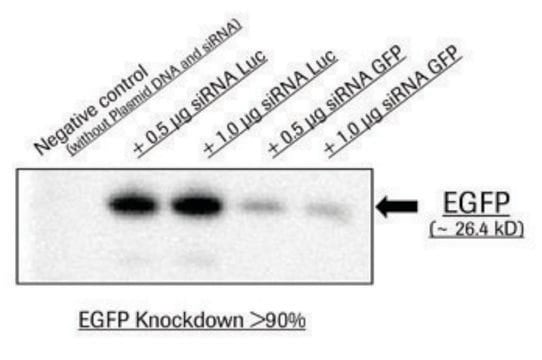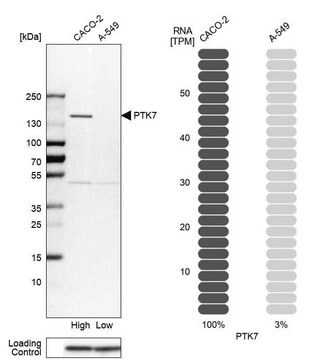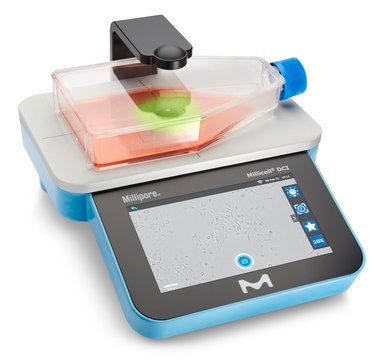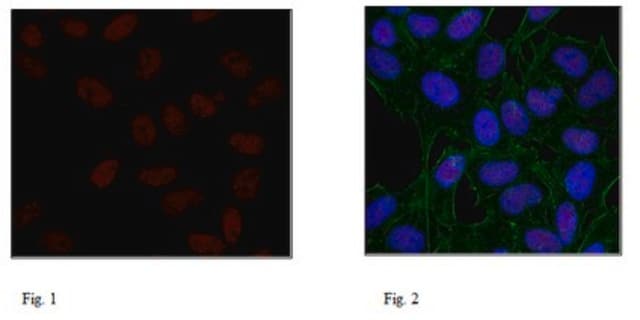Recommended Products
biological source
mouse
Quality Level
conjugate
unconjugated
antibody form
purified antibody
antibody product type
primary antibodies
clone
3E1, monoclonal
mol wt
calculated mol wt 202.17 kDa
species reactivity
human
packaging
antibody small pack of 100 μL
technique(s)
ELISA: suitable
immunocytochemistry: suitable
immunohistochemistry (formalin-fixed, paraffin-embedded sections): suitable
western blot: suitable
isotype
IgG1
UniProt accession no.
shipped in
dry ice
storage temp.
2-8°C
target post-translational modification
unmodified
Gene Information
human ... ITGB4(3691)
General description
Specificity
Immunogen
Application
Evaluated by Immunocytochemistry in A431 cells.
Immunocytochemistry Analysis: A 1:1,000 dilution of this antibody detected Integrin β4 in A431 cells.
Tested Applications
Flow Cytometry Analysis: 1 βg from a representative lot detected Integrin β4 in one million A431 cells.
Flow Cytometry Analysis: A representative lot detected Integrin β4 in Flow Cytometry applications (Vijayakumar, S., et. al. (2008). J. Am. Soc. Nephrol.19(6):1079-91; Hauptmann, S., et. al. (1995). Int. J. Cancer. 61(6):819-25).
Immunohistochemistry Applications: A representative lot detected Integrin β4 in Immunohistochemistry applications ( Hauptmann, S., et. al. (1995). Int. J. Cancer. 61(6):819-25).
Immunofluorescence Analysis: A representative lot detected Integrin β4 in Immunofluorescence applications (Swanner, J., et. al. (2019). FASEB BioAdv. 1(10):639-660).
Note: Actual optimal working dilutions must be determined by end user as specimens, and experimental conditions may vary with the end user
Physical form
Storage and Stability
Other Notes
Disclaimer
Not finding the right product?
Try our Product Selector Tool.
Storage Class
12 - Non Combustible Liquids
wgk_germany
WGK 1
flash_point_f
Not applicable
flash_point_c
Not applicable
Certificates of Analysis (COA)
Search for Certificates of Analysis (COA) by entering the products Lot/Batch Number. Lot and Batch Numbers can be found on a product’s label following the words ‘Lot’ or ‘Batch’.
Already Own This Product?
Find documentation for the products that you have recently purchased in the Document Library.
Our team of scientists has experience in all areas of research including Life Science, Material Science, Chemical Synthesis, Chromatography, Analytical and many others.
Contact Technical Service
